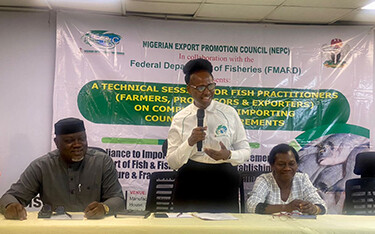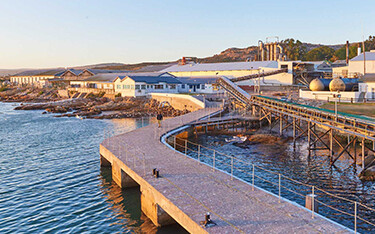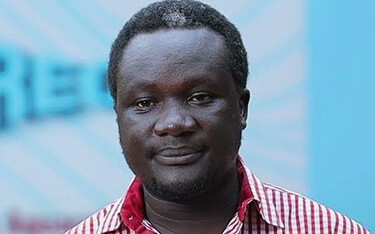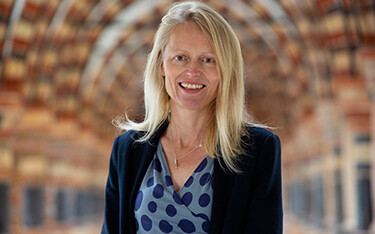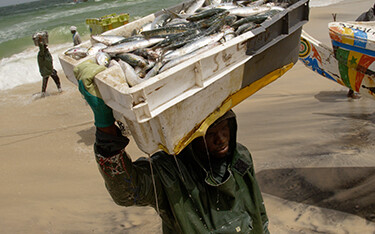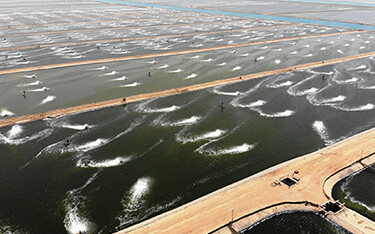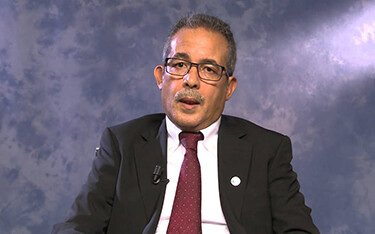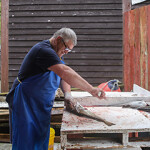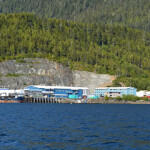In response to a regression of aquaculture production levels over the past seven years, Nigeria is teaming up with development partners to implement a catfish farming project aiming to reverse the downward trend.
Aquaculture production in the West African nation hit an all-time high of about 316,000 metric tons (MT) in 2015 but gradually declined to 290,000 MT in 2019 before spiraling to 261,700 MT in 2020, according to the Food and Agriculture
… Read MoreCape Town, South Africa-based Saldanha Protein Group has launched a major maintenance program to enhance the performance of its fishmeal and fish canning operations ahead of the country’s fishing season in Q1 2024..
Saldanha Protein Group General Manager Marthin Potgieter told SeafoodSource that the ongoing maintenance program at its St. Helena Bay-based factory on the country’s west coast entails replacing one of the fishmeal
… Read MoreCape Town, South Africa-based fish-processing company Oceana Group posted a 29 percent year-over-year increase in revenue for the fiscal year ending 30 September 2023, driven by an increase in global prices on nearly all of its products – particularly fish oil.
Oceana Chairman Mustaq Brey and CEO Neville Brink said in a joint statement issued on 27 November that a weaker South African rand that aided in export value, and a surge in revenue
… Read MoreThe high capital expenditure and energy consumption of recirculating aquaculture systems (RAS) is hampering uptake of the fish-farming technology in many emerging markets.
BioMar Group Global Marketing Director Katherine Bryar told SeafoodSource that RAS technology remains expensive venture that also requires advanced knowledge of complex systems for it to be viable. The significant upfront costs and cutting-edge nature of much of
… Read MoreCape Town, South Africa-based fish-processing company Oceana Group has recorced a positive performance within its canned fish sector, as well as its fishmeal and fish oil business, thus far in 2023. Suleiman Salie, the group’s managing director of its canned fish brand Lucky Star, talked to SeafoodSource on the organization’s recent performance and how the group navigates the stringent regulations its export markets place on all
… Read MoreCertifications are essential credentials for improving fisheries, reducing instances of illegal fishing, increasing the effective use of fish waste, and achieving food security, according to Libby Woodhatch, the executive chair of London, U.K.-based marine ingredient certification body MarinTrust.
During this year’s edition of IFFO – The Marine Ingredients Organization’s annual conference in Cape Town, South Africa, which took
… Read MoreThe growing fishmeal and fish oil industry in West Africa has mainly supported export market growth, leaving domestic seafood markets with dwindling amounts of fish available for human consumption, environmental degradation, and decreased income for fishers and factory workers in Mauritania and Senegal, according to a new human rights impact assessment.
Senegal and Mauritania account for 1.12 percent and 0.22 percent of global fishmeal and fish
… Read MoreSaudi Arabia is on a mission to increase its aquaculture output dramatically by 2030, and as part of this drive the country’s largest aquaculture firm, the National Aquaculture Group (NAQUA), plans to increase its seafood output by more than 400 percent over the next seven years.
Despite the country’s access to rich fishing grounds along the Red Sea and Arabian Gulf coastlines, Saudi Arabia’s domestic seafood market has a
… Read MoreThough there have been continued attempts to expand African aquaculture efforts, the continent’s global contribution to total production remains just 1 percent, with financing remaining a major challenge in expanding the sector.
Lahsen Ababouch, the Food and Agriculture Organization’s (FAO) senior advisor on fisheries and aquaculture, talked to SeafoodSource during this year’s Marine Ingredients Organization (IFFO) annual
… Read More

